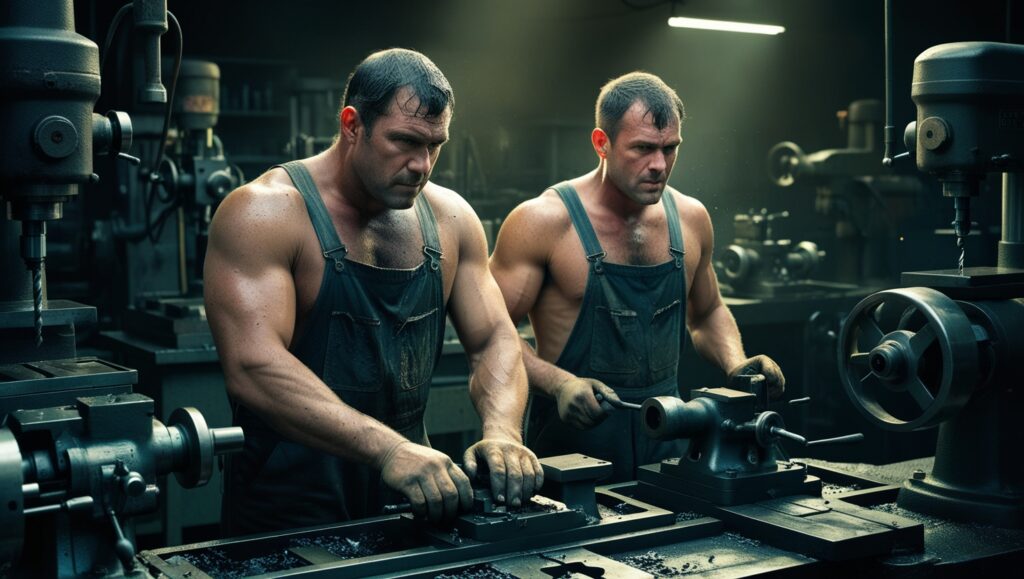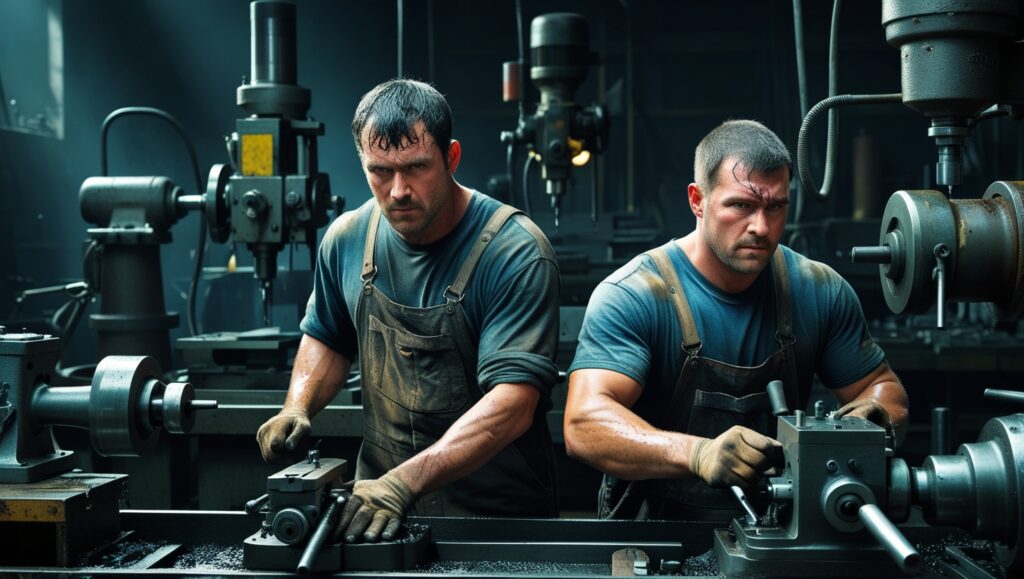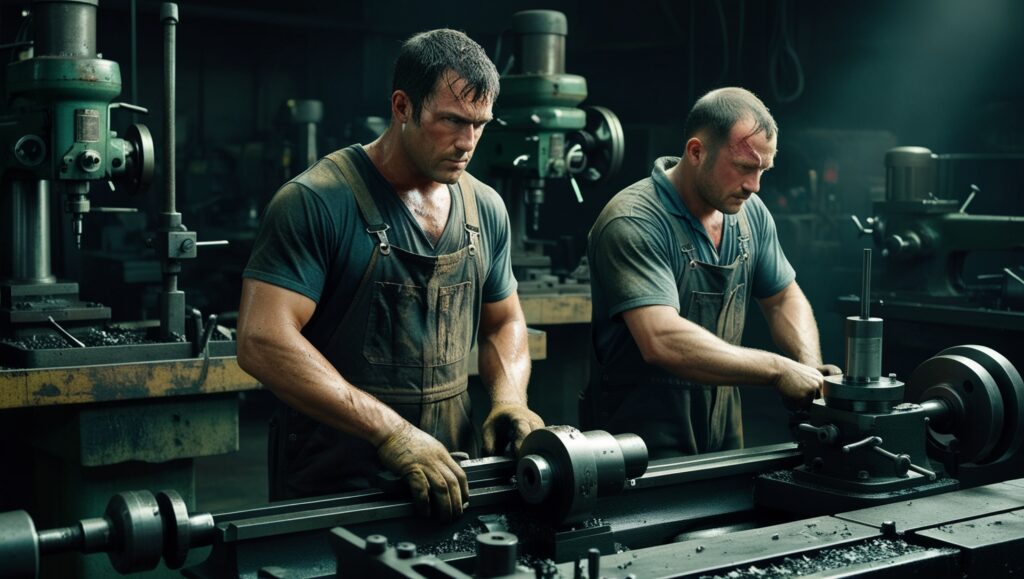Introduction
Machinists are often referred to as the backbone of the manufacturing industry, as they play an indispensable role in creating the parts and components that power everything from automobiles to medical devices. The skills and knowledge of a machinist are critical to ensuring precision, functionality, and quality in the production process. This article will explore the world of machinists, their responsibilities, skills, training, and their impact on modern manufacturing.
What is a Machinist?
A machinist is a skilled tradesperson who operates machine tools to create precise metal parts and products. These parts are often used in industrial applications, ranging from simple components like bolts and nuts to highly complex pieces such as engine blocks and turbine blades. Machinists use various tools and machines to shape raw materials into the desired form, including lathes, milling machines, grinders, and computer numerical control (CNC) machines.
The role of a machinist can vary depending on the industry. Still, generally, machinists are responsible for interpreting blueprints and technical drawings, setting up and operating machines, inspecting finished parts for accuracy, and ensuring that all work meets the required specifications.
History of Machining
Machining has existed for centuries, but the 18th and 19th centuries Industrial Revolution brought significant technological advances. Early machining was done using essential hand tools, but the process became more precise and efficient with the advent of more advanced machines like the lathe and milling machine.
The introduction of CNC technology in the mid-20th century marked another significant leap forward. CNC machines allowed for computer-controlled precision, reducing the possibility of human error and increasing production speeds. Today, machinists blend traditional skills and cutting-edge technology, creating highly intricate components used across numerous industries.
Types of Machinists
Machinists can specialize in various types of machining, each requiring specific knowledge and skills. Below are some of the primary types of machinists in the industry.
CNC Machinist
A CNC (Computer Numerical Control) machinist is responsible for programming and operating CNC machines, which are automated machines that use computer programs to control their movements. These machinists work with computer software to design and implement machining instructions, allowing for high levels of precision and efficiency in production.

Manual Machinist
Manual machinists operate traditional machine tools like lathes, mills, and grinders without computers. They work from technical drawings or blueprints and make machine adjustments by hand to create precise parts. Manual machinists have a deep understanding of mechanics and tool use and are often considered more versatile because of their ability to operate both manual and CNC machines.
Tool and Die Maker
Tool and die makers are specialized machinists who design, create, and repair the tools, dies, and molds used in manufacturing processes. These tools are essential for mass production, and the work of a tool and die maker requires a deep understanding of machining, metallurgy, and engineering principles.
Precision Machinist
Precision machinists focus on creating parts with incredibly tight tolerances, often to the micron level. These machinists are employed in industries where accuracy is critical, such as aerospace, medical device manufacturing, and defense. Their work ensures that each part fits perfectly in larger systems, reducing the chance of mechanical failure.
Maintenance Machinist
Maintenance machinists are responsible for maintaining and repairing the machinery used in manufacturing. They ensure that machines are properly calibrated, troubleshoot mechanical issues, and replace worn-out parts to ensure continued operation. They play a vital role in minimizing downtime and extending the lifespan of industrial equipment.
Key Responsibilities of a Machinist
Machinists take on a range of essential tasks in the manufacturing process. Some of the key responsibilities include:
Reading and Interpreting Blueprints
Machinists must be able to read and interpret technical drawings and blueprints to understand the dimensions, materials, and tolerances of the parts they need to create. Blueprints provide a roadmap for machinists, ensuring they know how to machine the part to meet specific requirements.
Setting Up Machines
Before starting production, machinists are responsible for setting up machines, including choosing the appropriate tools, fixtures, and settings. This involves aligning the material, adjusting the machine controls, and ensuring everything is in place to start the machining process.
Operating Machines
Machinists operate various machines to cut, shape, grind, or drill the material. Depending on the machine, they may need to make real-time adjustments to ensure the part is correctly produced. This requires skill, attention to detail, and a thorough understanding of machine operations.
Inspecting Parts
Quality control is a crucial aspect of a machinist’s job. After each part is produced, machinists must inspect the finished components to ensure they meet the required specifications. This is typically done using various precision measuring instruments, such as micrometers, calipers, and coordinate measuring machines (CMMs).

Maintenance and Troubleshooting
Machinists are often responsible for maintaining and troubleshooting the machines they operate. This involves cleaning, lubricating, and adjusting equipment as necessary to ensure it continues to function correctly. In case of a malfunction, machinists must be able to diagnose the problem and make the required repairs.
Skills Required for a Machinist
Acombination of technical skills, manual dexterity, and problem-solving abilities is required. to become an effective machinist Some of the essential skills include:
Technical Proficiency
Machinists must be proficient in operating various machine tools, including manual and CNC machines. This includes understanding how to properly set up and manage each machine to achieve the desired results.
Blueprint Reading and Mathematical Skills
Understanding blueprints and technical drawings is a fundamental skill for machinists. They must also have strong mathematical skills to calculate measurements, angles, and tolerances, ensuring that parts meet exact specifications.
Attention to Detail
Machinists work with exact measurements; even the slightest error can result in significant issues. An eye for detail ensures that every component is machined to the highest standard.
Problem-Solving Skills
Machinists frequently encounter challenges, from material defects to equipment malfunctions. Troubleshooting and solving problems quickly is a critical skill in minimizing downtime and keeping production running smoothly.
Knowledge of Materials
Machinists must understand the properties of different materials, such as metals, plastics, and composites. Knowing how each material reacts to various machining processes helps machinists choose the correct tools and settings.
Education and Training for Machinists
Becoming a machinist typically requires formal education, hands-on training, and experience.
Vocational Schools and Technical Colleges
Many machinists attend vocational schools or technical colleges that offer specialized training programs. These programs typically cover machine operation, blueprint reading, safety, and materials science. Students often gain practical experience through internships or hands-on labs.
Apprenticeships
An apprenticeship is another standard route for becoming a machinist. Apprenticeships combine on-the-job training with classroom instruction, allowing individuals to learn from experienced machinists while earning a wage. Apprenticeships usually last several years and provide a comprehensive education in the trade.
On-the-Job Training
In some cases, individuals may start as machine operators or assistants and learn the trade on the job. Many companies offer internal training programs that allow workers to gain the skills necessary to become machinists.
Certification
While not always required, certification can enhance a machinist’s career prospects. Organizations like the National Institute for Metalworking Skills (NIMS) offer certification programs demonstrating a machinist’s proficiency in various machining skills.
The Impact of Machinists on Modern Manufacturing
Machinists are crucial to the success of many industries, as they ensure that parts are made to precise specifications. Without their skill, many of the products we rely on daily—everything from smartphones to airplanes—would not function properly. As technology continues to advance, the role of machinists is also evolving. CNC machining, 3D printing, and other innovations are changing how machinists work, allowing them to produce even more complex and detailed parts more efficiently.

Moreover, machinists contribute to the economic health of nations by enabling the production of high-quality goods. Their work also directly impacts industries such as aerospace, automotive, medical devices, and energy, where the slightest mistake can lead to costly repairs or safety hazards.
Conclusion
The work of a machinist is both an art and a science. These skilled professionals transform raw materials into precision parts that power modern technology. From CNC machining to manual tool operation, machinists are at the heart of manufacturing, ensuring that every component meets the highest standards of quality and precision. As industries advance, machinists will remain a vital part of the global economy, adapting to new technologies and methods while maintaining the craftsmanship that has defined the trade for centuries.
FAQs
What is the difference between a CNC machinist and a manual machinist?
A CNC machinist operates computer-controlled machines, programming the machine to carry out precise tasks. A manual machinist, on the other hand, uses traditional machine tools that require manual input and adjustment.
How long does it take to become a machinist?
The time it takes to become a machinist depends on the type of training pursued. A vocational program or technical college degree typically takes 1-2 years, while an apprenticeship can take 3-4 years.
Is machining a promising career?
Yes, machining is a well-paying career with growth opportunities. As industries continue to demand more precision and technological advancement, skilled machinists are in high demand.
What industries employ machinists?
Machinists are employed in various industries, including aerospace, automotive, medical device manufacturing, defense, energy, and more.
What kind of tools do machinists use?
Machinists use various tools, including lathes, milling machines, grinders, CNC machines, and precision measuring instruments like calipers and micrometers.


